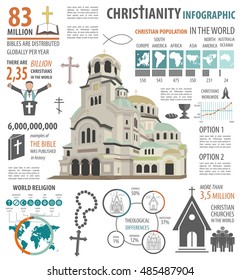Assessing The Rich Heritage And Lasting Legacy Of Catholic Schools Throughout The World
Assessing The Rich Heritage And Lasting Legacy Of Catholic Schools Throughout The World
Blog Article
Created By-copyright Galloway
When you consider the background of education, Catholic schools stand out for their deep-rooted practices and lasting impact. These establishments began as a means to impart belief and values, yet they've adapted incredibly over centuries. Today, they play a crucial role in shaping not just scholastic success however additionally moral integrity. What's interesting is just how they've managed to prosper among changing social landscapes, raising questions regarding their future relevance and influence.
The Origins of Catholic Education: A Historical Point of view
Catholic education and learning traces its roots back over 1,500 years, when early Christian areas identified the need for organized understanding. You'll find that these areas aimed to hand down their belief and worths via education and learning.
Monasteries and sanctuary institutions came to be centers of understanding, nurturing both spiritual and intellectual development. As you dive deeper, you'll see that the educational program typically consisted of approach, theology, and the liberal arts, developed to develop versatile individuals.
In time, the Church established much more official institutions, guaranteeing that education and learning stayed accessible to all. The commitment to teaching moral worths and cultivating a sense of area has persisted through the centuries, forming the academic landscape and affecting many lives worldwide.
This long-lasting legacy continues to motivate Catholic education and learning today.
The Development of Catholic Schools Through Cultural Contexts
As societies developed, so did the duty of Catholic colleges, adapting to the social contexts in which they existed. In the early years, these institutions concentrated primarily on religious instruction, however as areas expanded, they started to include regional languages, customs, and instructional needs.
You 'd see that Catholic colleges commonly became facilities for social communication, promoting a feeling of belonging among students from numerous backgrounds. In several areas, they addressed societal concerns, such as poverty and discrimination, by providing accessible education and learning for all.
As you discover different societies, you'll see how Catholic schools have actually changed their educational program and teaching techniques, showing the values and difficulties of their atmospheres while remaining true to their fundamental objective of faith and academic quality.
The Modern Duty and Influence of Catholic Schools in Society
In today's world, Catholic colleges play an important function in shaping not simply the educational landscape, yet also the wider community.
Suggested Internet site 'll discover that these establishments stress values like regard, concern, and social justice, promoting well-rounded people that add favorably to culture. By concentrating on https://www.butlercountytimesgazette.com/story/news/2021/10/11/college-host-fall-concert/6089560001/ and ethical growth, Catholic institutions prepare pupils for future obstacles, supporting important thinking and management skills.
They commonly offer varied populaces, connecting gaps in accessibility to quality education. Additionally, you could discover their commitment to service, encouraging trainees to engage in community outreach and volunteer job.
This blend of education and moral guidance makes Catholic institutions a substantial pressure, growing liable citizens that can affect their neighborhoods for the better.
Conclusion
To conclude, Catholic colleges have a rich history that's shaped their long-lasting effect on culture. You've seen exactly how they've adjusted to numerous social contexts while keeping a dedication to faith, worths, and scholastic excellence. Today, they remain to play a vital role in fostering area, promoting social justice, and nurturing accountable people. As you review their tradition, it's clear that Catholic institutions stay an effective force for positive change worldwide.
